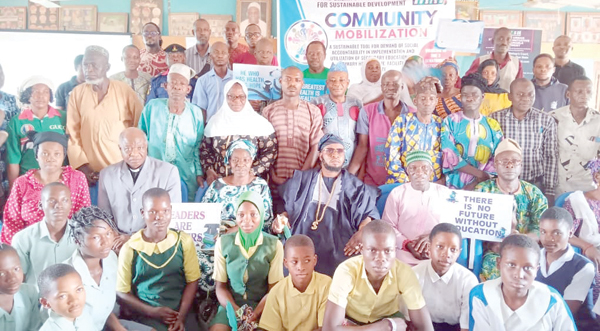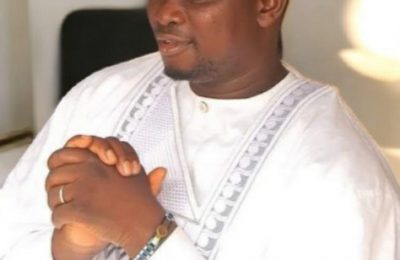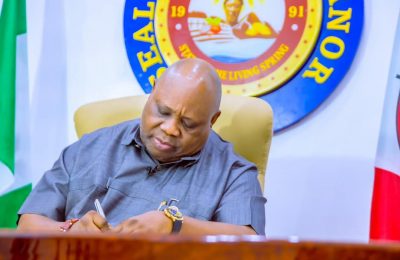

Rural and Urban Stewardship Initiative for Sustainable Development (RUSISD), under the auspices of Ibadan Anglican Diocese in Oyo State, has, during its community sensitisation and mobilisation programme organised for stakeholders in Oyo Central senatorial district held at Ajaawa in Ogo-Oluwa Local Government Area of the state, called for a shift in attitudes of local citizens.
RUSISD demanded that citizens and stakeholders such as the educational heads and students, PTA chairmen, heads of primary health centres (PHCs), traditional rulers, market leaders and youth representatives must collaborate with civil society organisations (CSOs) at the grassroots to view government’s infrastructure as a shared resource that should be efficiently and effectively implemented, utilised and maintained sustainably as an index for social accountability.

Speaking at a seminar with the theme ‘Tracking implementation and utilisation of constituency projects in secondary education and primary healthcare facilities’, RUSISD’s programme officer, Mrs. Chinyere Gift Onuoha, charged the people to promote and enhance their civic spaces by having understanding of their environment as key stakeholders and not just beneficiaries, in order to demand appropriately for social accountability from their representatives, both at the state and national levels.
She said: “This is the key to addressing the challenges and factors mitigating human development as individual and community.
“The challenges faced by the health centres were mostly centered around limited number of skilled hands, unavailability of drugs, water and toilet facilities, inadequate bed spaces in some places with high patronage while some areas are with enough bed spaces but low patronage.”
While lamenting the challenges faced in the secondary education facilities, the Onitapa of Tapa, Oba Alao Sikiru, said that qualified teachers were employed by the government for public schools; but in terms of delivery, the students cannot compete with their counterparts from private schools who, most times, based their employability on students with excellent result seeking admission into the higher institutions.
A representative from Obada Community High School, Mr. Tunde Adetumobi, disclosed that the ratio of teacher to student is about one to 50, adding that this depicts overcrowded classrooms, given limited human resources.
Adetumobi further said that these challenges are coupled with lack of security (perimeter fences around the school), toilet, water and other basic amenities for conducive learning.
Nigerian Tribune gathered students from Obada Community High School, Idi-Araba Community High School and Otamokun Grammar School who attended the event pleaded for a conducive environment and facilities to enhance their learning and equipped them for a brighter future.
In his remarks, RUSISD chairman, Venerable Adewale Sanda, Most Reverend J.O. Akinfenwa of the Ibadan Anglican Diocese, assured the participants that the identified challenges will soon belong to the past through continuous strategic engagement with the state and non-state actors, given the collaborations with other CSOs, national and international partners for development.








